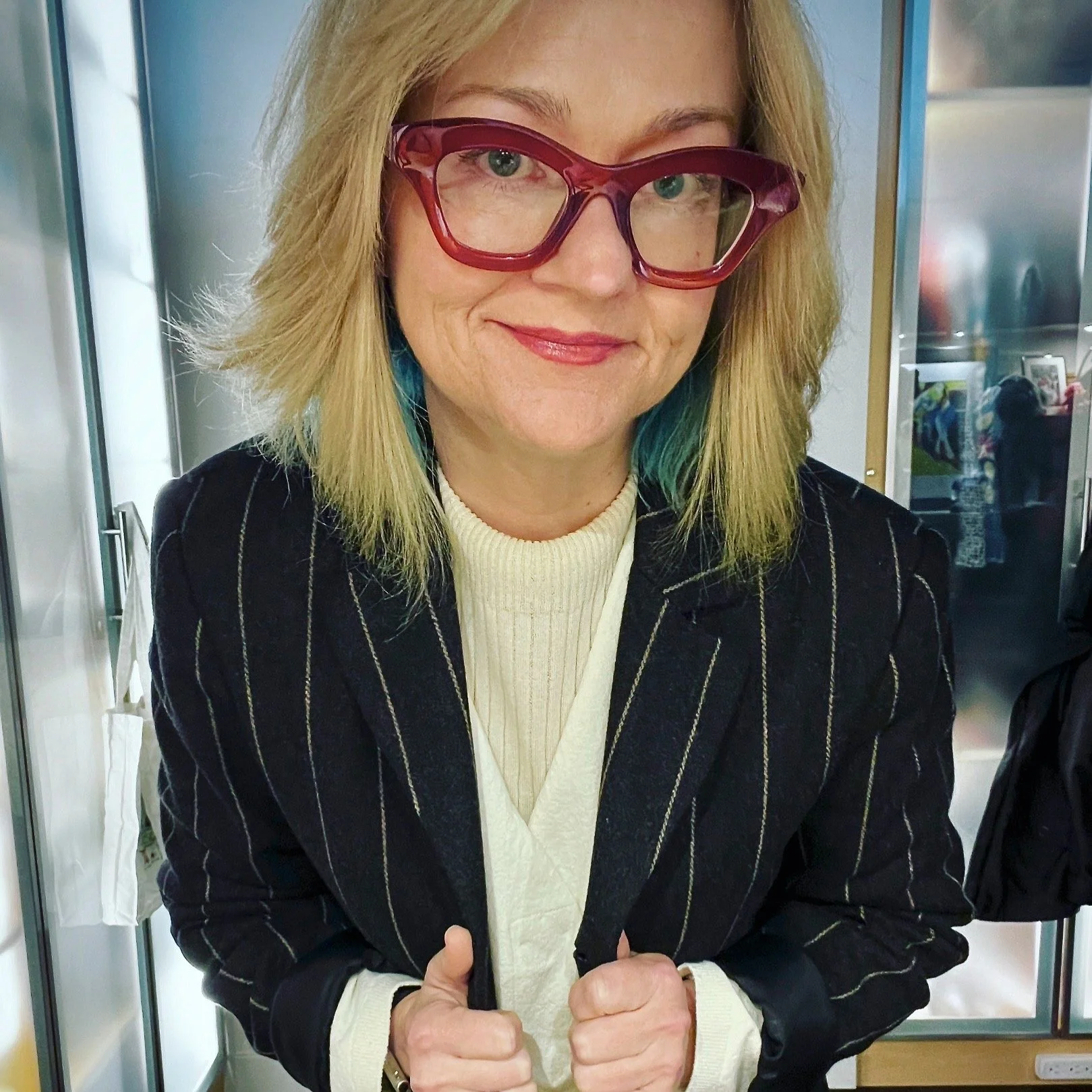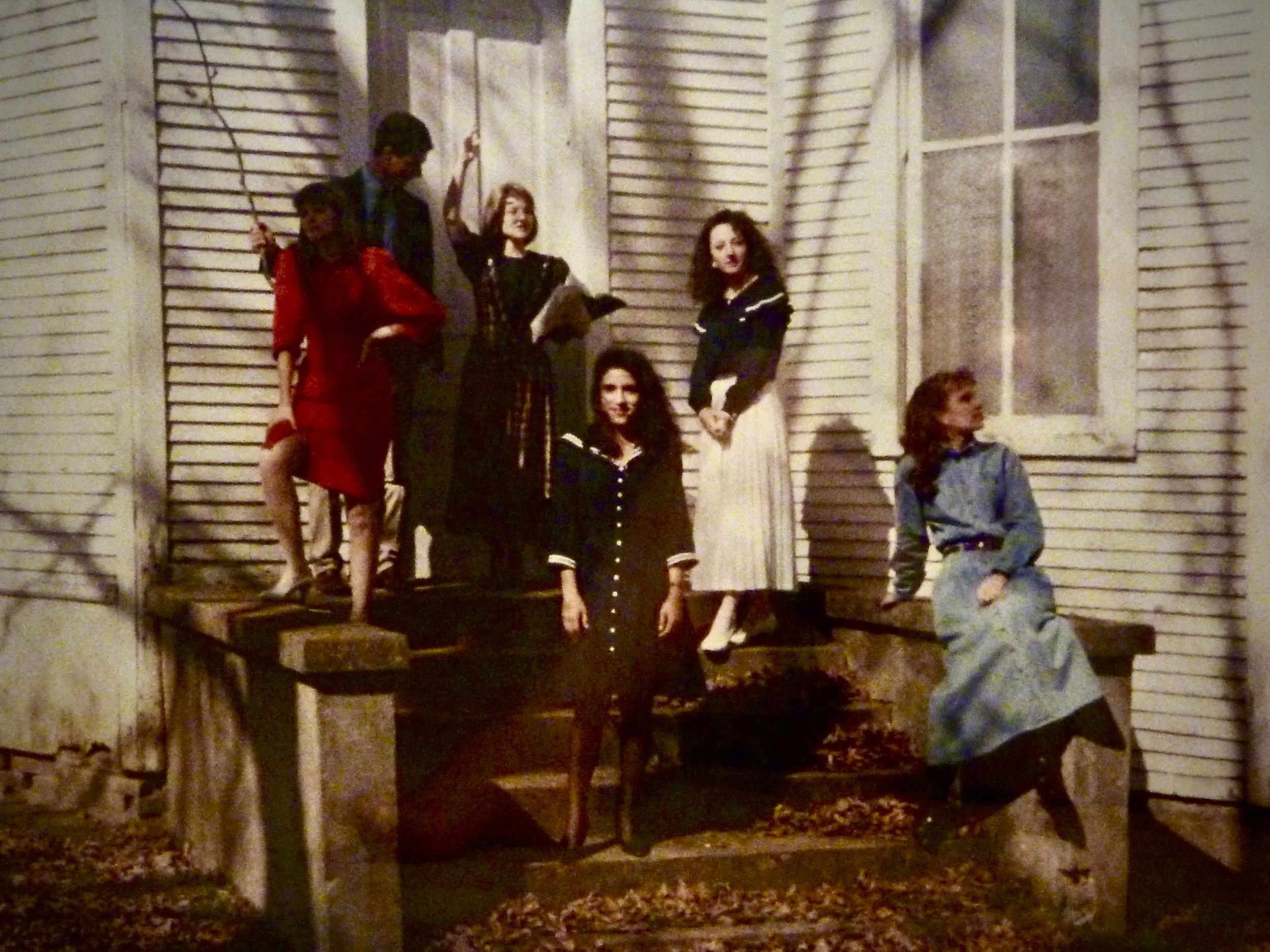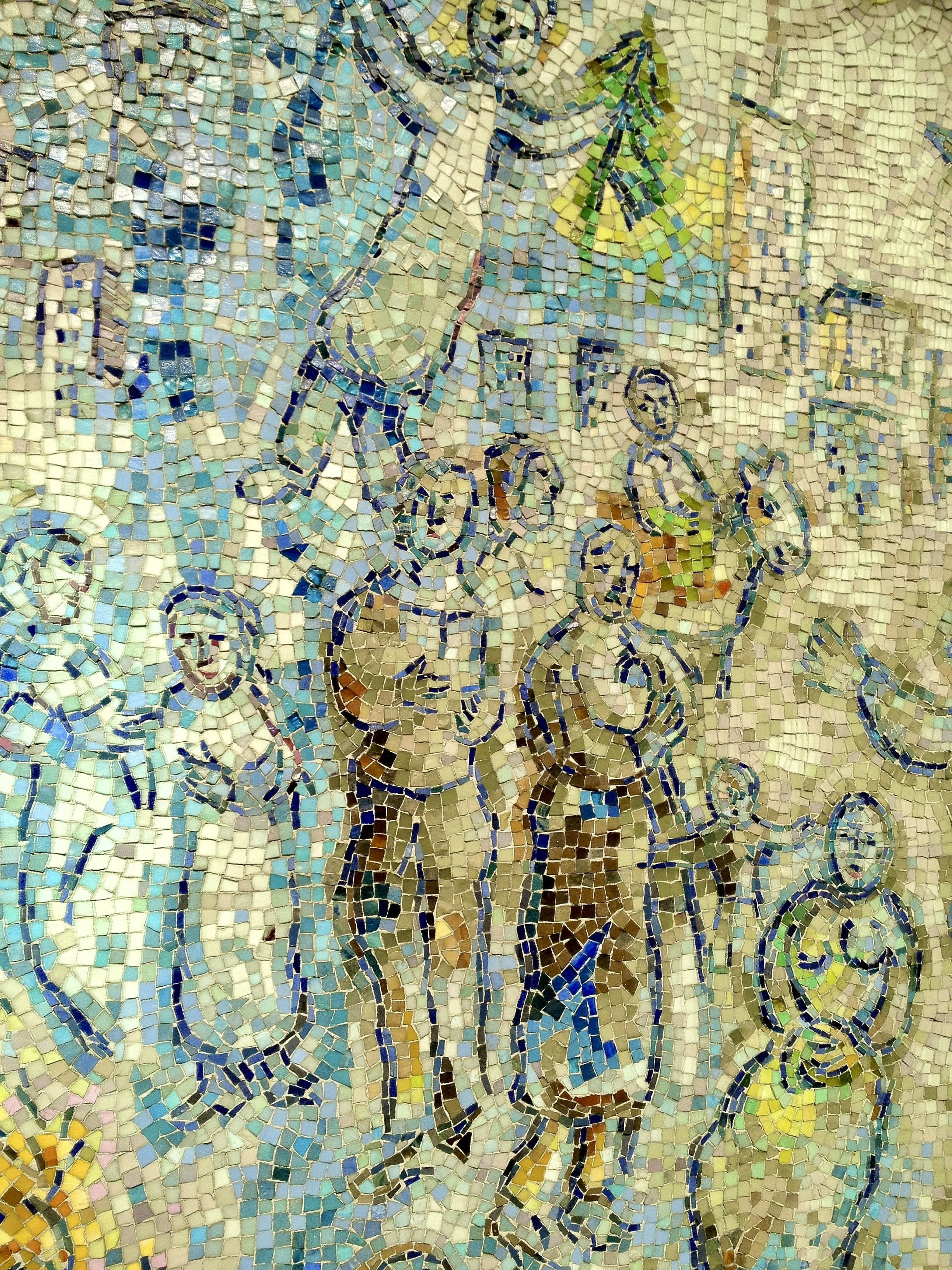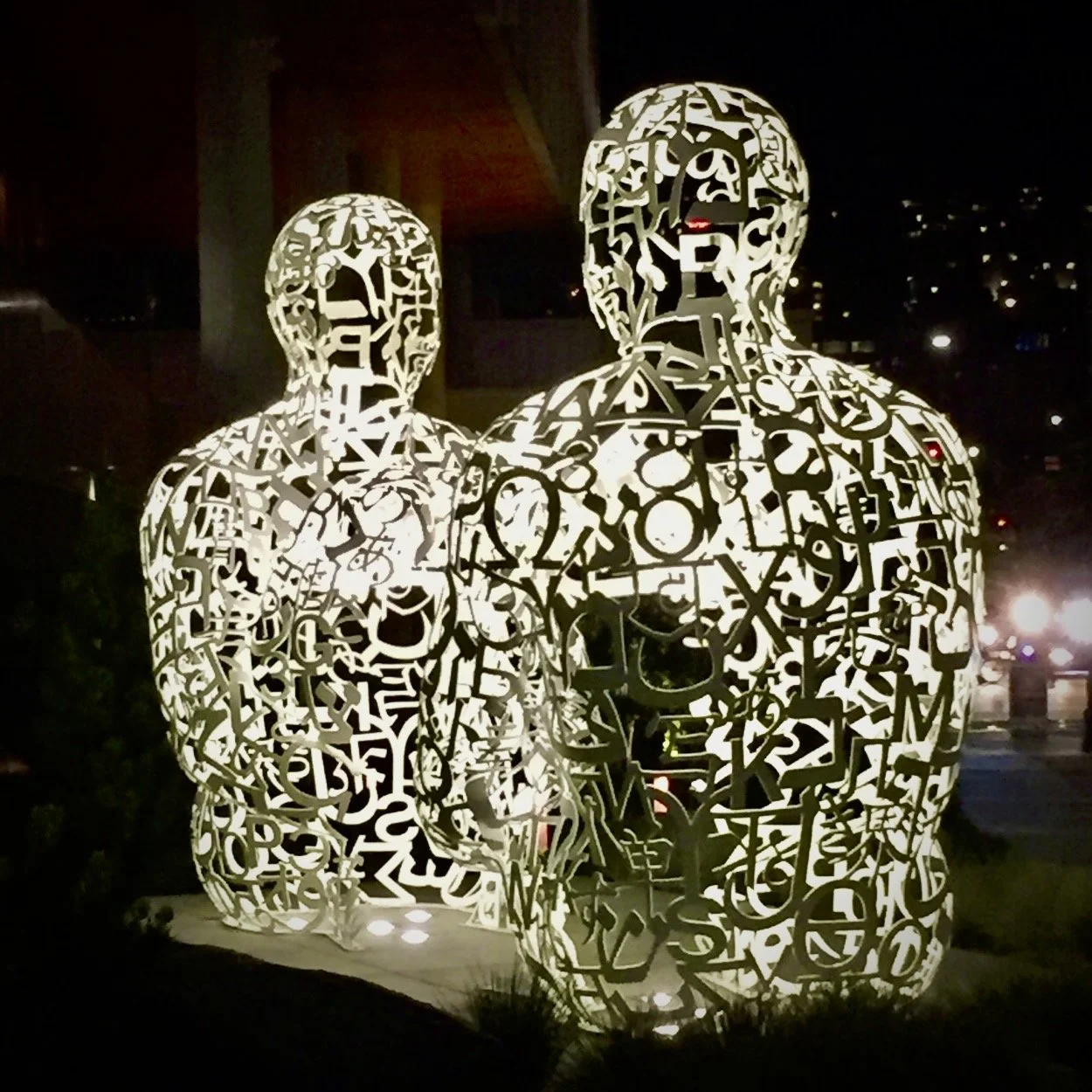Beyond Teilhard's Limits
Reclaiming the Noosphere for Everyone
Photo of my friends and me in college. It started out as an “album cover photo” but came to be symbolic in so many ways. A woman preaching. No one listening. The one man holding the branch of truth away from the speaker.
This is the second installment in a three-part series exploring the ideas of Pierre Teilhard de Chardin—a Jesuit priest, scientist, and visionary who saw human consciousness as an evolving force. In Part 1, we introduced his concept of the Noosphere, a vast web of human thought and connection, and wrestled with the contradictions in his vision. Now, in Part 2, we dive deeper into Teilhard’s radical ideas, his exile, and the tension between his dream of unity and the exclusionary beliefs that limited it. If human evolution is a conscious choice, the question remains: Who gets to be part of it?
Reading time: About 5 minutes.
Reclaiming the Noosphere for Everyone
It’s 1934. There’s a room in Beijing where Teilhard de Chardin sits, surrounded by dust-covered notebooks filled with ideas that no one is allowed to read—at least not yet. Outside, the world is shifting—political upheaval, scientific discoveries, an ever-accelerating modern age. But here, in this quiet space, Teilhard’s thoughts on religion, spirituality, and philosophy exist in exile.
He had always been a man straddling two worlds: a priest devoted to faith, a scientist devoted to reason. And yet, he belonged to neither. His ideas on evolution were too mystical for the scientists, too radical for the Church. The Vatican silenced him, banning him from publishing his work, sending him far from the centers of influence.
So he wrote anyway.
He wrote about consciousness as evolution, about a world where human minds were growing together, forming something larger than themselves. He wrote about the Noosphere, a planetary web of thought, an interconnected intelligence shaping the future of humanity.
Teilhard had seen where we were going. But no one wanted to hear it.
And I know how that feels.
I grew up in a world where certain voices were heard, and others were not.
As a petite woman who has always looked younger than I am, I’ve spent my life being underestimated, talked over, dismissed.
And in the church I grew up in, that dismissal wasn’t just a social habit—it was doctrine. Women could teach Sunday school but never stand in the pulpit. They could serve but never lead. Even the language used in church reinforced it—the divine was always He. Humanity was always mankind. There was no room for the feminine, no space for women’s voices in the places that mattered most.
I remember my mother once telling me she had heard women preach, but it always sounded simpler, less intellectual than the men she had listened to. And I remember my argument back: Maybe they didn’t have access to the same education. Maybe they weren’t allowed to be taken seriously.
Maybe they had something important to say, but no one wanted to hear it.
And now, looking at the world, I see it over and over again. The way women’s voices are dismissed. The way truth is manipulated. The way a country will choose power over wisdom, corruption over experience, control over progress.
Teilhard wasn’t just exiled for thinking differently—he was exiled because those in power weren’t ready to listen.
So what do we do when no one wants to hear us?
Teilhard had an answer: We keep writing anyway.
Teilhard’s Blind Spot—The Contradiction of His Vision
Teilhard believed humanity was evolving toward greater consciousness, greater unity. But here’s the uncomfortable truth: He didn’t think that unity applied to everyone.
For all his radical ideas about interconnectedness, Teilhard was deeply entrenched in racist, colonialist thinking. He believed in a hierarchy of the species, in the superiority of certain races over others. He entertained ideas of eugenics, seeing some people as more evolved—more deserving of progress—than others.
That contradiction is impossible to ignore.
Teilhard spoke of love as the force pulling the universe forward, of a great unity toward which we were all evolving—but he excluded entire populations from that vision.
I cannot read his work—cannot admire the beauty of his thoughts on the Noosphere—without also reckoning with how he would have seen me. A woman. A voice he likely would have patronized and dismissed.
Teilhard was exiled by the Church for his views on evolution, and I wonder: Did he ever stop to consider who else had been exiled? Not for their ideas, but for their existence? Did he ever recognize that the world he was fighting for was already rejecting others the way it had rejected him?
This isn’t just an uncomfortable footnote in his legacy. It forces us to ask: How do we honor big ideas without worshiping flawed thinkers?
Teilhard’s writing suggests that he believed human consciousness was expanding, but he never questioned who got to be part of that expansion. He never stopped to ask whether the very people he dismissed had something vital to contribute—perspectives that might have changed his own understanding of the Noosphere.
Reclaiming the Noosphere—Not for the Elite, but for Everyone
And here’s where the tension gets even more complicated. Teilhard’s ideas—especially his vision of human evolution—have been picked up by people I want nothing to do with.
Transhumanists. Silicon Valley technocrats. Men like Elon Musk—who see Teilhard’s Omega Point not as a metaphor for human connection but as justification for dominance, for reshaping the world in their image.
Teilhard believed humanity was evolving toward something higher.
Transhumanists believe the same—but through technology, AI, genetic engineering, and ultimately, a selective vision of who “deserves” to evolve. Teilhard’s eugenicist leanings fit far too easily into the transhumanist vision of a post-human future, where only the strongest, smartest, or most “advanced” survive.
I cannot look at Teilhard’s work without seeing this shadow.
And yet, I also cannot let them take his ideas unchallenged.
Teilhard’s Noosphere—his vision of human minds linking together, expanding in knowledge, connection, and love—is not just for the elite, not just for the powerful, not just for those who believe they are above the rest of us.
Teilhard was wrong about many things, but the idea of the Noosphere, of a shared consciousness shaping our future—that idea is bigger than him.
It is bigger than Musk.
Bigger than transhumanism.
Bigger than the narrow vision of progress that excludes so many.
And if we are to take Teilhard’s vision seriously, then we must expand it beyond his limitations.
The Noosphere must be for all of us—or it is not progress at all.




